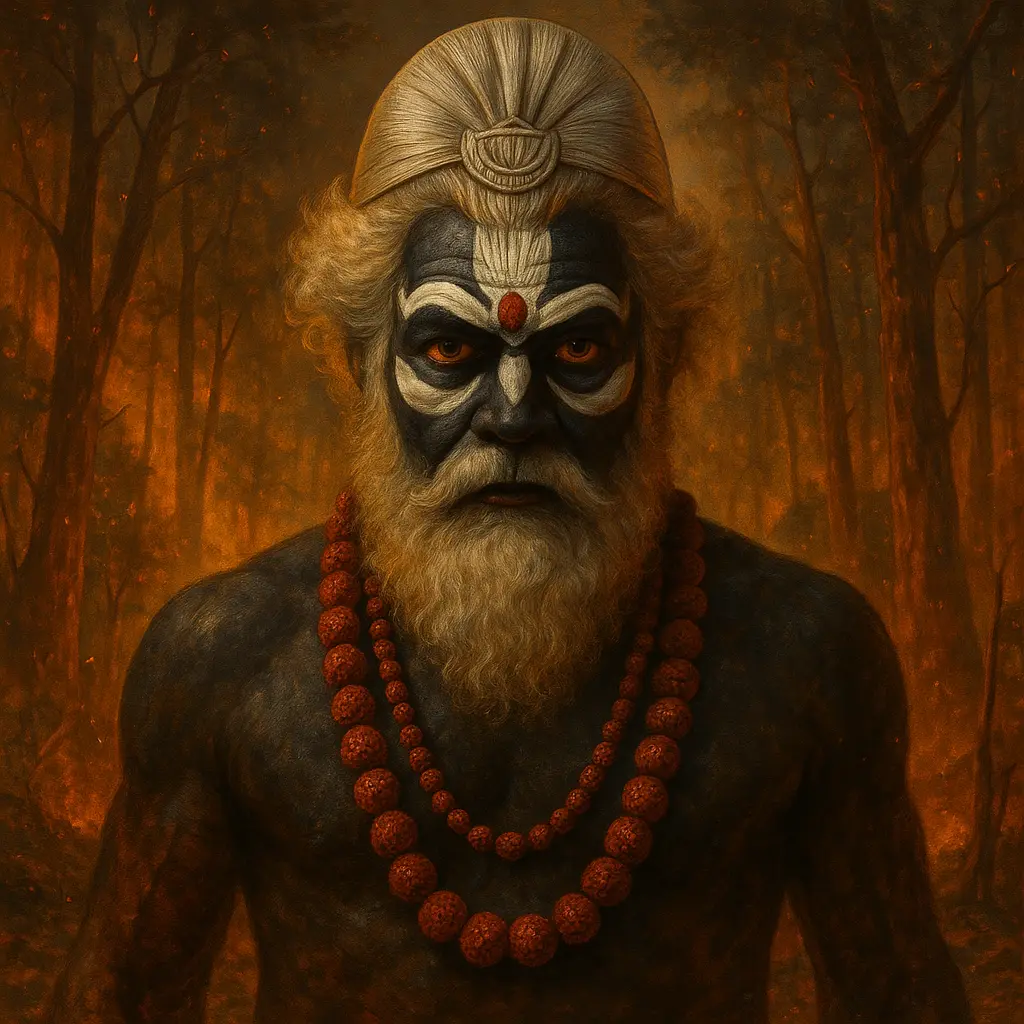Koragajja: The Benevolent Old Guardian Spirit of Tulu Nadu

Introduction
Koragajja (Koraga Thaniya), one of the most beloved spirit deities of Tulu Nadu – an area stretching along Karnataka and northern Kerala’s coastal areas – is venerated not as an abstract god but as a close protector who walks among them. Worship for this deity takes place not in grand temples but through ancient rituals called Bhootha Kola, where dance, music, and trance unify earth and heaven to create one powerful spirit deity who unifies communities beyond religion or caste differences.
Generation after generation after generation after generation after generation have found solace in this mythological figure which unifies communities more effectively than religion or caste divides.
Origins and the Legend of Koragajja
Koragajja was an important part of Koraga community, known for their deep ties to nature and age-old customs. Folklore tells that Koragajja lost his mother, Maire, at only one month old; orphaned so young, he wandered forests and villages, subsisting on what nature offered. At Kallapu he sat under a tree eating white sand as rice and wild guava as coconut; laughter mixed with tears floated through the wind showing both his pain as well as strength of spirit.
As he journeyed further south, his loneliness soon gave way to purpose. People began sensing his presence during times of need: in sudden winds or dreams or soft voices offering guidance. Over time, Koragajja became more than a man; he evolved into a Daiva who watched over farmers, fishermen, and travelers; his name came to symbolize protection as well as kindness an old soul who understood human sorrow while protecting all those who turned to him for protection and assistance.
Worship and Ritual Practices
Koragajja’s worship remains one of the most moving components of Bhootha Kola culture. These nightlong rituals transform village courtyards into sacred grounds filled with drumbeats and torchlight as an impersonator, whether chosen through lineage or devotion – prepares to embody Koragajja.
Once the dance begins, its performer enters into a state of trance; their steps, movements, and speech no longer belong to themselves; instead they belong to Koragajja. Devotees ask questions of Koragajja; these answers often provide guidance regarding disputes, illnesses or family concerns that have arisen within communities.
People feel connected to Koragajja through an intimate bond; many refer to him as their grandfather (Ajja in Tulu). This term signifies warmth and familiarity rather than fear; his devotees view Koragajja as an experienced elder who listens, protects and corrects when necessary – providing peace and balance throughout families and communities alike.
Cultural and Social Significance
Koragajja’s story runs deep through Tulu Nadu and into people’s memory, reminding people of values central to their culture: respect, humility and harmony with nature. Koragajja also symbolizes equality: though born into an underserved community himself, his spirit now inspires devotion from people of all castes or status.
Koragajja’s name often arises in village life during festivals, harvests, and times of conflict. Before undertaking major decisions such as building houses or making major decisions that affect families directly, his blessings represent protection from harm and peace within households. Even today many Tuluvas keep photos or statues as tokens of respect in urban settings.
Religion aside, his worship also helps preserve Tulu Nadu’s oral traditions through Bhootha Kola performances that pass along songs, chants, and narratives from generations past into living history lessons for younger audiences today. These performances connect young people to both their ancestors as well as an identity that continues despite modernization.
Temples and Sacred Sites
Temples dedicated to Koragajja can be found all along the coast, each one boasting their own legend. Of special note is Swamy Koragajja Aadisthala in Kuthar, Mangalore; visitors travel far and wide for its services as devotees leave offerings of coconuts, rice and prayer before offering up coconuts as sacrifice. Furthermore, its grounds often host cultural gatherings, storytelling sessions, storytelling feasts as a means of keeping tradition alive.
As opposed to mainstream shrines, these temples maintain an atmosphere of openness where people from diverse backgrounds come together without hierarchy or exclusion; it embodies Koragajja’s nature of being inclusive, kind, and profoundly human.
Continuity of Faith
Koragajja’s legacy lives on strong. Elders in villages teach children his stories during evening gatherings; rituals continue year-by-year with different performers and audiences taking part. While his form may have evolved over time, his essence remains the same – devotion rooted in humility and gratitude.
Social media and documentaries now bring his legacy to a wider audience, yet those who visit Tulu Nadu often say that to truly experience Koragajja’s presence one must witness a Bhootha Kola first-hand – with its rhythm of drums, chants, and quiet reverence of its people all coming together into an experience that words can only hint at.
Connection with Kantara
Fans of the movie Kantara have speculated that the old man character, played by Rishab Shetty, could be interpreted as a cinematic rendition of Koragajja. Much like the deity, the old man in Kantara embodies a guardian figure, deeply connected to the land and the local folklore. His mysterious presence, protective role, and knowledge of the mystical elements of the forest mirror the traits of Koragajja, blending myth with cinematic storytelling. This interpretation adds an extra layer of cultural resonance for audiences familiar with Tulu Nadu’s spirit traditions, making the folklore feel alive on screen.
Conclusion
Koragajja stands as an iconic figure of Tulu Nadu’s spiritual identity, teaching lessons of courage, kindness, and equality through his life and legend. Unlike distant deities who remain far away, his worship unifies people, heals divisions between religions, and helps ensure an ongoing bond between land, people, and faith.
Koragajja’s legend transcends mere legend; it stands for memory, belonging, and respect. Every time prayers are spoken under torchlight skies his name echoes calmly yet consistently throughout them all – constant yet eternal.

